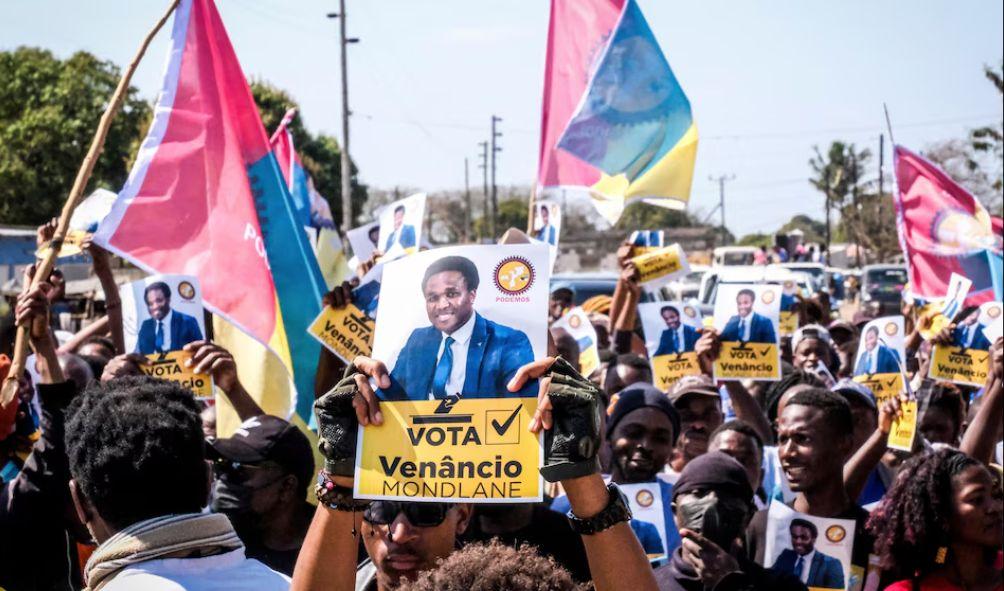Mozambique’s Presidential Election: What You Should Know
Mozambicans are poised for a significant turnout in Wednesday’s election to select President Filipe Nyusi’s successor following his two terms in office. With nearly 17 million registered voters in a population of 31 million, the election will also determine 250 parliamentary and provincial assembly seats.
While the ruling Front for the Liberation of Mozambique (Frelimo) is widely expected to maintain power, the election has drawn attention from four candidates seeking change in a country grappling with a prolonged jihadist insurgency in the north and vulnerability to severe climate conditions along its Indian Ocean coastline.
The insurgency has displaced over 1.3 million people and exacerbated food shortages affecting millions due to drought. Concerns over electoral integrity, which sparked violent protests during last year’s local elections, have been less pronounced this time.
In this election:
– Frelimo has nominated David Chapo, former governor of Inhambane province, known for its tourism, as its candidate.
ALSO READ:
- Under and Over 7 — when the rules are simple, but the emotions are intense
- CAF Trophy Hunt: Win iPhone, MacBook, PlayStation, and other prizes in 1xBet promo!
- Rigathi Gachagua Responds to Raila Odinga’s Claim That He Can’t Fix Kenya’s Problems
- Miguna Miguna Criticizes New IEBC Chair Erastus Ethekon, Calls Him a Ruto Ally- ‘Not Independent’
- Matiang’i: No Scores to Settle, I Just Want to Fix My Country
– Independent candidate Venacio Mondlane, backed by the Optimistic Party for the Development of Mozambique (Podemos), has garnered significant support with his campaign slogan “Save Mozambique, this country’s ours”.
– Lutero Simango of the Democratic Movement of Mozambique, formed in 2008, focuses on youth issues, inequality, and job creation.
– Ossufo Momade represents Renamo, succeeding the late Afonso Dhlakama, and has been prominent in addressing the insurgency in Cabo Delgado province.
Key issues include the insurgency, which has seen Islamic State-affiliated attacks since 2017, displacing hundreds of thousands and devastating local communities. Candidates have pledged to address this crisis along with unemployment, hunger exacerbated by drought, and corruption scandals that have plagued the ruling party.
Results will be announced gradually after voting concludes, with official confirmation expected within 15 days by the National Election Commission and validation by the Constitutional Council, which may hear objections from parties challenging the results.
Mozambique’s Presidential Election: What You Should Know
